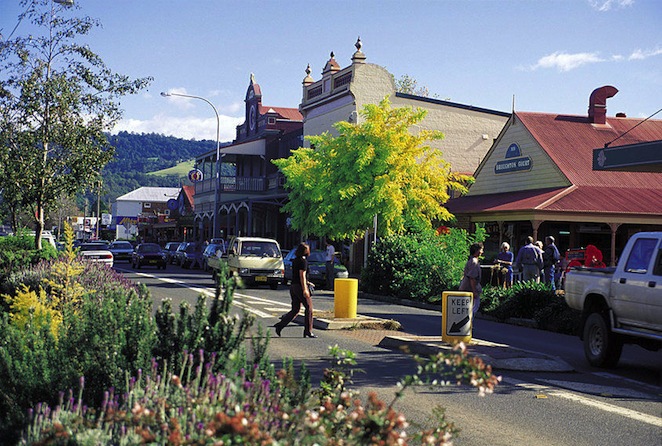Netherlands
Find Eduxpress Programmes
If Rembrandt, Van Gogh, and speed skating go together in your mind, and you like mobility and open-minded people, then perhaps you were made for studying in the Netherlands.
Extra treats are the internationalised community, hearing English spoken as frequently as Dutch, great museums, and a colourful nightlife. Sure, the rainy weather might be a bit of a downer, but you won’t mind it when you have great company.
What can we say? There are few other study destinations better than the Netherlands. But it’s never a bad idea to give you more specific details, so you know what you’re getting yourself into.
Dutch public universities have very affordable tuition fees if you're an European Union/European Economic Area (EU/EEA) national. You won't usually pay more that 2,100 EUR per academic year, with various study programmes often being cheaper than that.
The story is a bit different for non-EU/EEA students, who pay anywhere between 6,000 and 20,000 EUR per year. That's still much more affordable when compared with tuition fees of over 50,000 EUR per year in the USA.
Over 90% of Dutch citizens speak English. Whether you want to visit a famous tourist attraction on your own, ask for directions, or buy something from a shop, you won't have any headache regarding language barriers.
The popularity of the English language also makes it very easy to socialise and connect with people, to take part in social and cultural events, or simply make friends and go out.
In this case, work flexibility means two things: one, you can work in any number of fields after graduation and enjoy great salaries and employee benefits; and two, the Netherlands is one of the leading countries where the 4-day work week is a common option in all sectors of the economy.
According to governmental statistics, there are over 23 million bikes in the Netherlands, more than the number of actual citizens (around 17 millions). Cycle lanes are literally everywhere, and many students and employees use them to commute on a daily basis.
It represents a great way to reduce air pollution and increase personal health and wellbeing.
The Netherlands is one of the safest and happiest countries in the world. This is hardly surprising when we look at the high standard of living, the educated citizens, and society as a whole.
Numerous English-taught programmes and native English-speaking teachers make studying in the Netherlands very appealing to international students. And there’s no other country that can beat the Netherlands at programmes related to Water Resource Management. By now, you already suspect that some of the most popular study options in this country are related to Engineering and Tech.
Here are some key subject areas you can study in the Netherlands:
The Netherlands has ten major cities that attract both students and tourists, and are great urban hubs. Dutch cities are often lively, environmental-friendly, and maintain a cultural vibe.
Some of the best student cities that you can choose from are:
With over 10 universities featured in the top 500 international higher education rankings, Netherlands is an exciting country to study in. Dutch universities attract their students with a casual approach to education and top English-taught degrees.
If you don’t know where to start looking for a Dutch university, we have a few international universities we recommend:
The Dutch higher education system is based on the Bologna process. There is an official country website providing information about studying in the Netherlands, and you can visit the educational institutions' websites for more information. Enrolment applications should be submitted via Studielink.nl.
Generally, your starting point should be the website of the educational institution. Here you can find all the information about the content of the programme and also how to enrol. Usually, this will guide you to Studielink for the enrolment application. In Studielink, you should follow the next steps:
Each degree and university have their own application requirements, so pay attention and carefully check the list of documents. For questions about or help with your enrolment, you can contact the student services of your prospective university.
Usually, the documents required are:
Some universities may require extra documents, such as:
Let's take a closer look at the average tuition and living expenses in the Netherlands:
As part of the EU, the Netherlands practices different tuition fees for EU/EEA students and non-EU/EEA students. Tuition fees for EU students are between 700 and 2,100 EUR/year, while for non-EU students they start at 6,000 and can reach 20,000 EUR/year. Private universities are even more expensive.
Still, you should be mindful that the cost of studies is influenced by the type of degree and by the subject area. For example, Master’s programmes are typically more expensive than Bachelor’s programmes, and can reach even 30,000 EUR/year.
The Netherlands is not the cheapest country in the EU, but the living costs here are not that high either. On average, you need a budget of 800–1,200 EUR/month. Here are some figures that will give you an overall idea about what you can expect in terms of Dutch living costs:
Interesting facts about the Netherlands
Everybody knows that the Netherlands is the country of tulips and windmills. But did you know that Netherlands is not only big on tulips, but on all flower bulbs? About 80% of the world’s flower bulbs come from the Netherlands.
On a more serious note, Netherlands has a very rich cultural history, as it was the home of painters like Hieronymus Bosch, or Jan Steen, but also of the famous sixteen century scholar Erasmus of Rotterdam.
For those of you who still call the Netherlands Holland, you’re in for a surprise: Holland is actually a region of the Netherlands. This means that not all Dutch people come from Holland, but all Hollanders come from the Netherlands.
The Netherlands is also a monarchy since… forever. Interestingly enough, today’s ruling monarch, King Willem-Alexander, is the first male monarch the country has had in 123 years.
Some other interesting facts that might also influence your stay in the Netherlands that you should know about are:



